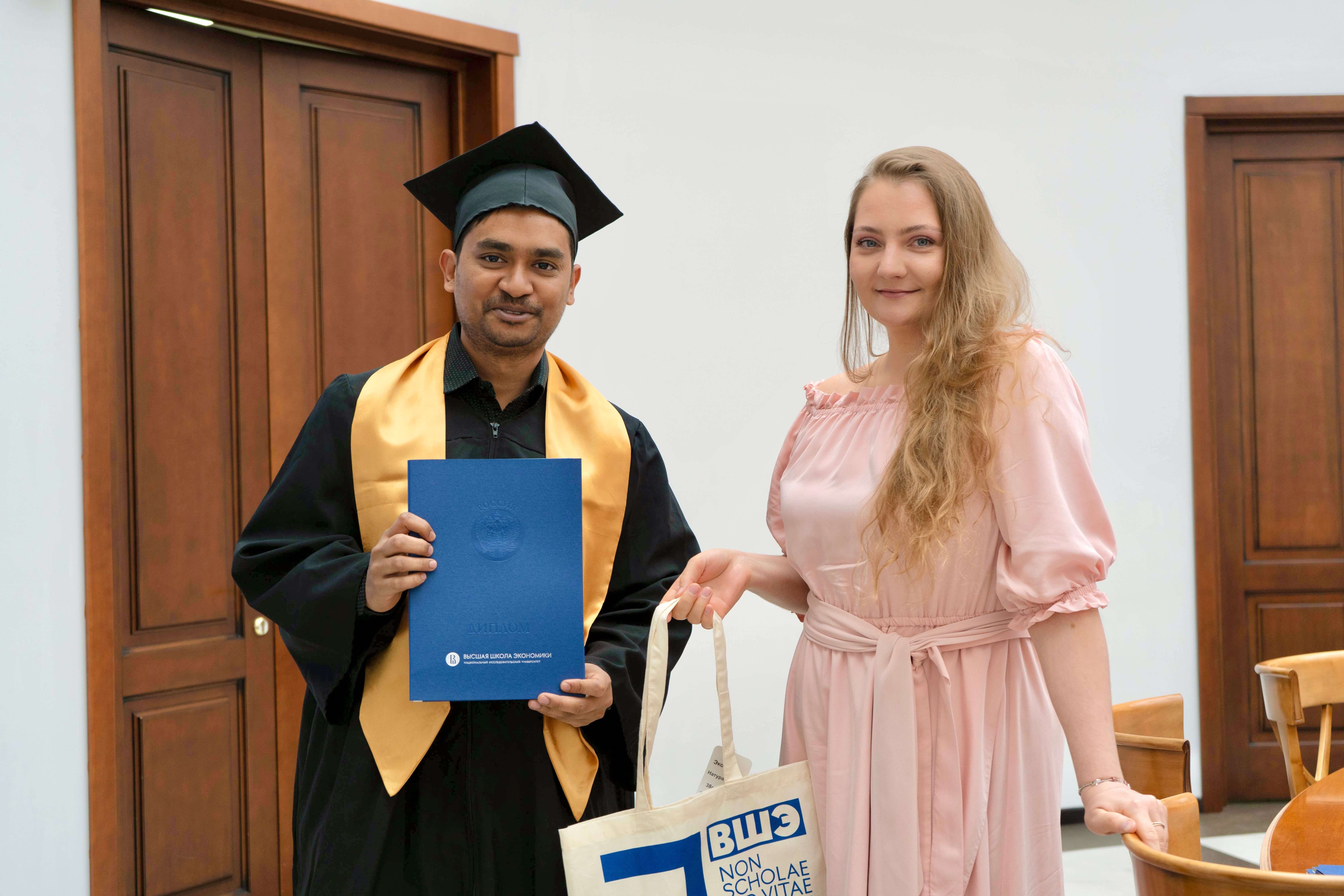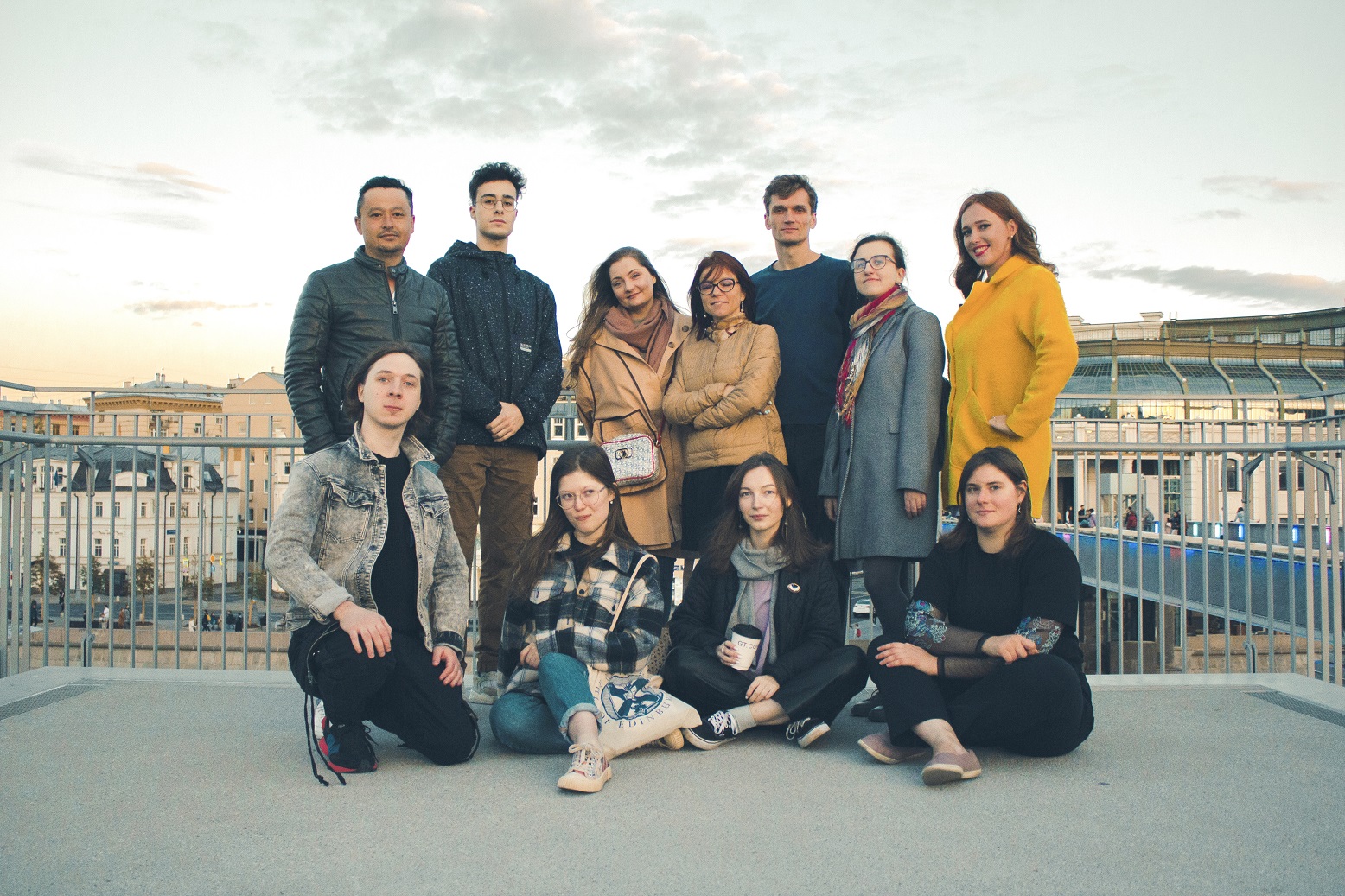Admissions for ‘Comparative Social Research’ Master’s Programme Now Open
.jpg)
The English-taught master's programme in Comparative Social Research studies sociology from a global perspective and is intended for those who are interested in understanding how people's actions affect society and what influences the decisions and self-identification of individuals and groups in different cultures, regions and circumstances. Students participate in interregional and cross-country quantitative and qualitative research, working on their own projects. The programme’s academic supervisor Ekaterina Mitrofanova told HSE News Service about the course’s features and admission process.
What We Teach
Our programme is an umbrella for different areas of sociological research, focusing on comparison (cross-country, gender, generational, etc.). Such studies can be carried out both by quantitative methods (involving data from mass surveys, statistics) and qualitative (analysis of interviews, texts).

Ekaterina Mitrofanova
Our students can choose their own thesis topic and the methods they will use to conduct research. Most often they do empirical, applied work, but there are methodological and even theoretical theses.
How Our Programme Differs from Other Master's Programmes in Sociology
First of all, I would like to mention the international teaching and student staff. The training is delivered entirely in English, and information about this is conveyed in the degree certificate.
Our programme builds on the experience of the Ronald F. Inglehart Laboratory for Comparative Social Research, both thematically (our students often work with World Values Survey data in the areas that the laboratory deals with) and methodically (we teach students advanced methods used by world-class scientists: Social Network Analysis, Multilevel Regression Analysis, Event History Analysis and others).
We provide the opportunity to study both full-time and online. This is important for our international students who sometimes can’t come to Russia — for example, COVID-19 restrictions have been in place in China for several years. This ongoing experience has led to the hybrid implementation of our programme: full-time classes are broadcast online, and some courses (inter-campus MAGOLEGOs) are delivered in a completely remote format.
The Situation with Double Degrees and Changes in the Educational Process
The double degree programme remains on hold for the time being, so we have decided to bring in a calendar of preparation and defence of term papers in a format comparable to other master's programmes. Now the term paper defense will take place not at the end of the second module of the second year of study, but in the fourth module of the first year. This year's first-year students successfully defended the layouts of their research papers, showing their readiness to switch to this format.
What Internships Are Offered to Students
Mandatory internships have been transformed into 12 project credits. These credits are awarded when performing three types of projects: research, practice-oriented and service.
Projects can be carried out either in the second year of study, or systematically over two years. The optimal strategy is to track interesting tasks at the Project Fair and respond to newsletters from the staff and teachers of the Comparative Social Research programme, the laboratory and other partners.

What's New in the Portfolio Competition
This year, together with other programmes in the School of Sociology, we are awarding the same number of points for the same components of the portfolio of documents. This makes the whole process clearer and easier for applicants, because you can apply for several master's programmes at once.
We accept portfolios instead of exams, so we assess the level of preparation of applicants based on an essay describing their scientific interests and a motivational letter, as well as documentary evidence of their academic success.
We are also interested if the applicants are active not only in their scientific life (although the main focus is on this), but also in extracurricular activities, volunteering, assistance at the faculty and other similar activities. Therefore, I recommend students to include all this experience in their CVs and attach certificates and letters of appreciation.
How Applicants Can Contact Us
Most often we use email, but it can be more convenient and faster to communicate via Telegram. For this reason, we have created a channel specifically for applicants of our programme. The most up-to-date information is posted there and we have a separate chat feature for communication.
A detailed timeline of the admission process can be found here.
Career Opportunities for Programme Graduates
Most often, the programme graduates work in analytics, international research centres, pursue international PhD programmes and doctoral programmes in Russia. We invite some graduates to teach at our programme and work in the laboratory.
Our international graduates and students also shared their study experiences, for example, Xinyi Zhao and Yuanqi Zhou.

Advice for Applicants
Don’t be afraid to ask any questions to your academic supervisor. Communication with applicants has demonstrated that all questions are important when making a decision, they help to establish contact and remove any feelings of uncertainty.
Don't be afraid of interviews. In our programme, they are not tools for evaluation, but simply allow us to get to know each other and help the applicant understand if the programme meets their expectations. We are fond of research. If you are fond of it too we will be glad to see you among our students!
See also:
HSE University Reports New Findings on Links between Job Satisfaction and Life Satisfaction
Natalia Soboleva has examined the impact of various factors on the link between job satisfaction and life satisfaction. Using data from the European Values Study, she found the association between job satisfaction and life satisfaction to vary across sociodemographic characteristics. In particular, job satisfaction contributes more significantly to life satisfaction for men compared to women, while being married weakens the association between job satisfaction and life satisfaction. The paper is published in the International Journal of Sociology and Social Policy.
Authoritarianism as the Opposite Pole of Postmaterialism
On April 10, Ronald Inglehart, founder of the World Values Survey and the Laboratory for Comparative Social Research, delivered an honorary lecture at the LCSR’s 9th international seminar held as part of HSE’s XX April Academic Conference. The lecture addressed the roots of authoritarianism, its relationship to other widely investigated phenomena and its empirical linkage with contemporary politics.
VTB Starts Funding Comparative Social Research at HSE
This year VTB is launching the Endowment for Comparative Social Research at HSE. The endowment will make it possible to invest 10-20 million roubles in research each year. The exact amount will depend on trust management of the endowment assets, implemented by VTB Capital Investment Management.
Single People Get Less Happy as They Age
While being single or married does not usually make much difference in terms of life satisfaction for younger people, single individuals tend to feel less happy as they age, particularly at certain moments of their lives, and most single people experience a peak of unhappiness once they retire, according to Anna Shirokanova, Senior Research Fellow of the HSE Laboratory for Comparative Social Research in St. Petersburg.
Life of the Russian Regions is Hidden from the Government
About 40% of the Russian able-bodied population are employed in the informal sector of the economy. This is a competitive market economy. Subsistence production, distributed manufacturing, ‘garage production’, seasonal work and various cottage industries flourish in the Russian regions. The economies of many small cities feature strict specialization and developed cooperation, in the context of internal competition between families and clans. These are the findings of HSE professors Simon Kordonsky and Yury Pliusnin in their study ‘Social Structure of the Russian Provinces’.
Sexual Revolution Not Universal in Post-Soviet Countries
Attitudes towards family and sexual norms vary widely across the former Soviet Union republics. At the country level, economic development and the level of religiosity both help to determine attitudes, while age plays an important role at the individual level. Middle-aged people tend to be more liberal than those who are older or younger, according to a study conducted by Sofia Lopatina, Veronica Kostenko, and Eduard Ponarin of the HSE's Laboratory for Comparative Social Research (LCSR) in St. Petersburg.
Belief in Life after Death Affects Suicide Rates
Followers of older, more established religions are less likely to commit suicide than adepts of newer faiths. Factors influencing the risk of suicide include a feeling of isolation from the majority and a belief in life after death, according to a study by Eduard Ponarin, Director of the HSE's Laboratory for Comparative Social Research (LCSR) in St. Petersburg, and Vassily Usenko, M.D., Ph.D., from Dnipropetrovsk.
International Conference on Economics and Culture
On November 10-15, the IV International Conference ‘Cultural and Economic Changes in a Comparative Perspective’ took place in St. Petersburg. Organized by HSE’s Laboratory for Comparative Social Research, the conference has traditionally brought together Russian and foreign scholars working on issues of values, trust, social capital, corruption and inequality in a changing world, as well as the role of religion in political activity and other social issues in Russia and other countries.
New Master’s Programme in Sociology for Aspiring Young Researchers
A new English-taught master’s programme at the HSE, ‘International Master in Comparative Social Research’, will allow students to acquire the knowledge and skills that are in demand on the global market for social research. Applications are due by May 31, 2014.
International Sociology for Master’s Students
The HSE is accepting applications to the International Master’s Programme in Comparative Social Research. The programme was developed by the Laboratory of Comparative Social Research in collaboration with the Faculty of Sociology. Eduard Ponarin, Director of the LCSR, shared his views on preparing modern analysts, and in which areas of global economy they could apply their skills and knowledge.


